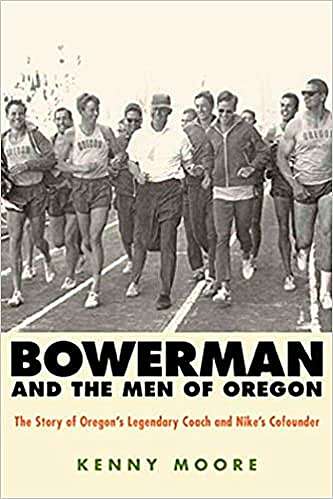
My highlights from the book:
1. Celebrate optimum rather than maximum.
2. Take a primitive organism, any weak, pitiful organism. Say a freshman. Make it lift, or jump or run. Let it rest. What happens? A little miracle. It gets a little better. It gets a little stronger or faster or more enduring. That's all training is. Stress. Recover. Improve. You would think any damn fool could do it, but you won't. You work too hard and you rest too little and get hurt.
3. In theory, as a coach, he should have been as interested in motivating the lazy as in mellowing the mad, but he wasn’t. “I’m sorry I can’t make them switch brains,” he said. “But I can’t.” That left him free to be absorbed by the eager.
4. “We have no hard and fast training rules,” Bowerman went on. “The vicissitudes of life usually teach an intelligent person what he can handle. It does help to have someone wise in the ways of candles to steady you as you grope toward the light. That would be me."
5. “I don’t believe in chewing on athletes,” he once said. “People are out there to do their best. If you growl at them and they’re not tigers, they’ll collapse. Or they’ll try to make like a tiger. But the tigers are tigers. All you have to do is cool them down a little bit so they don’t make some dumb mistake.”
6. Bowerman understood that paradox—the need for both abandoned effort and ironclad control—because it was his own.
7. It was a defining ordeal, a winnowing out of the nonindustrious, the nonenduring, the inflexible, the uncooperative.
8. In his approach to the world, he would take stock, give nothing away, circle to different vantage points, and keep an eye out for a sign of something he might exploit.
9. If you ask where Nike came from, I would say it came from a kid who had that world-class shock administered at age seventeen by Bill Bowerman. Not simply the shock, but the way to respond. He attached such honor to not giving up, to doing my utmost. Most kids didn’t have that adjustment of standards, that introduction to true reality.
10. Bowerman thought of himself as an educator. He scorned recruiting and almost never gave full scholarships. “Anyone can be taught,” he said, “those who don’t expect a handout best of all. I’d sure rather be teaching than blowing smoke up some spoiled brat’s ass.”
Learn from history's greatest entrepreneurs by listening to Founders. Every week I read a biography of an entrepreneur and find ideas you can use in your work.